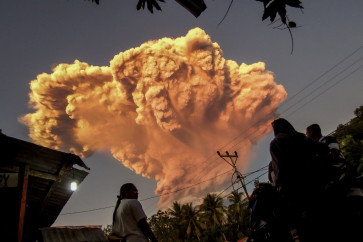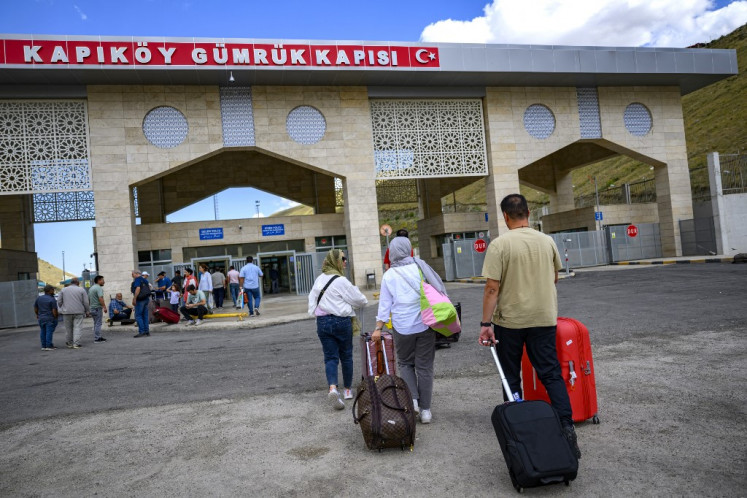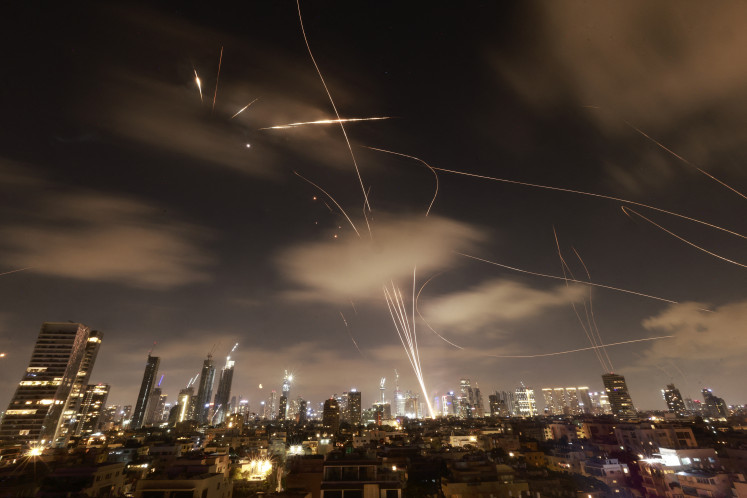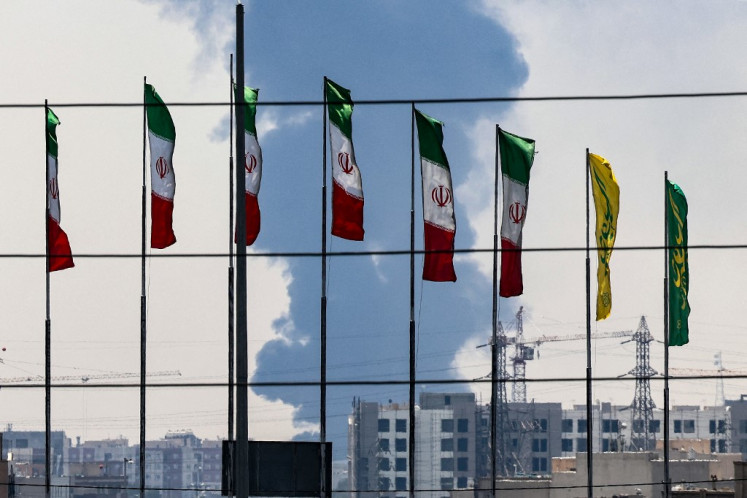Popular Reads
Top Results
Can't find what you're looking for?
View all search resultsPopular Reads
Top Results
Can't find what you're looking for?
View all search resultsBelgium-RI 70 years: From phallic symbols to niqab
While a teenager living in Jakarta in the early 1970s, my parents had a statue of Manneken Pis they had bought on one of their visits to Brussels, perched on the wall over a pond inside our house
Change text size
Gift Premium Articles
to Anyone

W
hile a teenager living in Jakarta in the early 1970s, my parents had a statue of Manneken Pis they had bought on one of their visits to Brussels, perched on the wall over a pond inside our house. It was a replica of the famous statue of a cherubic naked boy peeing, the iconic symbol of the capital of Belgium.
Why Manneken Pis? Because of its water-spouting function of course, perfect as a fountain for their pond!
How on earth does a city adopt a peeing boy as its symbol? A number of legends explain this, but perhaps the most famous is that in the 14th century, a boy named Julianske peed on the blasting safety fuse of explosives belonging to enemy attackers intending to blow up the city walls, thus saving Brussels.
This year marks the 70th anniversary of Belgium-Indonesia relations, two countries of outwardly great contrasts. By size, Indonesia is the world’s 15th largest country, while Belgium ranks 138th. Population-wise, Indonesia has the fourth-largest population with over 270 million people, while Belgium ranks 79th with a population of about 11.5 million.
Yet I was surprised to find interesting connections and similarities between the two countries.
Indonesia is one of the world’s most diverse nations, but Belgium is also a melting pot of different cultures, languages, race and religions.
If Indonesia has 17,000 islands, Belgium has about 1,700 types of beer! Belgian beer culture is so unique that in 2016, the United Nations Educational, Scientific and Cultural Organization included it in its list of intangible cultural heritage!
Belgium was among the first European countries to recognize Indonesia’s independence in 1949. Was it partly because it, too, between 1815 and 1830, was colonized by the Dutch?
Fifteen years, much briefer than Indonesia, although the entire archipelago wasn’t actually colonized for 350 years as we incorrectly like to claim.
Belgium has a 6.2-hectare Indonesian-themed park — the only nation in Europe to have one. The Kingdom of Ganesha opened in 2009 and is located in the Pairi Daiza Conservation Park in Brugelette. Imagine being able to see the Borobudur and Prambanan temples there, albeit only miniature replicas!
On the other hand, we have Tintin, the Belgian comic book reporter created by Hergé, who is extremely popular in Indonesia. We even have an Indonesian Tintin Community. Tintin’s 22nd adventure about flight 714 was set in Indonesia, a story of “hijacking, alien abduction and separatist rebels on a volcanic island”.
In 2014, during President Joko “Jokowi” Widodo’s presidential campaign, he was depicted on social media with the comic-strip style of Tintin because his blusukan hands-on approach was seen as being similar to that of Tintin — not as a superhero, but as a hard worker.
There’s nothing like using a pop culture icon to appeal to voters, especially the younger generation!
I love this kind of trivia that connects Belgium and Indonesia because it’s fun, fascinating, sometimes uniquely quirky and shows our commonalities in our differences.
However, we both also face serious problems, such as Islamic conservatism and radicalism.
In 2016, on March 22, Belgium was hit by three coordinated bombings: two at Brussels airport and one at Maalbeek metro station. The terror attack claimed 35 lives, including the lives of three suicide bombers, and injured 316. It was not the first nor last attack, but they were smaller and claimed much fewer lives.
It’s really hard to make the connection in my mind that the land of Manneken Pis and the best chocolate in the world (or so they claim!) could also be the base of operations for the terrorists attacks that occurred in the 2010s. This includes the Nov. 13, 2015, Paris attack, the deadliest in France since World War II and the second-deadliest in the European Union since the Madrid train bombings in 2004.
Today, Nov. 13, marks exactly four years since the Paris attack, which claimed the lives of 130 people and injured 413.
Some Brussels suburbs are also where militant views were developed before Islamists departed to the Middle East to join the Islamic State group. Other locations in Europe were also fertile ground for the spread of violent ideologies and preparation of attacks, but from 2015 to 2016, the foreign media depicted some of these Brussels suburbs as “micro caliphates”.
While a minority religion (estimated between 4 to 6.5 percent), Islam in Belgium is the second-largest religion after Christianity and continues to grow.
Is this one of the consequences of Belgium opening up to immigrants from Muslim countries, mainly Morocco, Algeria, Turkey and to a lesser extent, Tunisia and Egypt?
If it is, for Indonesia, it’s as much a consequence of democratization in 1998, which ironically gave rise to the nondemocratic forces of Islamic conservatism and radicalism. Rampant social media helped, and the rise of populism and right-wing politics worldwide provided the context.
I was struck by the similarity in the controversy around the wearing of the niqab in both Indonesia and Belgium. Since 2015, Belgium has banned the niqab and burqa, which covers the face. This is the case in most European countries and even Muslim countries such as Morocco, Tunisia and Chad.
Recently, a furor arose in Indonesia surrounding a ban on the wearing of face-covering Muslim attire for civil servants by new Religious Affairs Minister Fachrul Razi, who, incidentally, is a retired military general. Strange credentials for a minister of religious affairs.
The ban revolves around the classic tension between security measures (especially after the stabbing of Wiranto, former chief security minister, by Islamic radicals) and freedom of expression, including attire. This tension is one that won’t go away soon, whether in Belgium, Indonesia or indeed, the world.
Oh dear, this is getting too serious! Let’s go back to the fun of city symbols!
If Brussels has Manneken Pis, who bares his penis for all to see, Jakarta is not to be outdone with its National Monument — very clearly a phallic symbol. In fact, it’s sometimes referred to as “Sukarno’s last erection”!
Belgium and Indonesia were selected as nonpermanent members of the UN Security Council for the 2019-2020 period (together with Germany, South Africa and the Dominican Republic), which means the two countries will work even more closely together. Consolidation of our 70-year relationship and our mutual commitment to world peace, the environment and gender equality?
Last but not least, Nov. 15 marks the Belgian King’s Feast, celebrated since 1866. A toast to the King! With Belgian beer of course!









